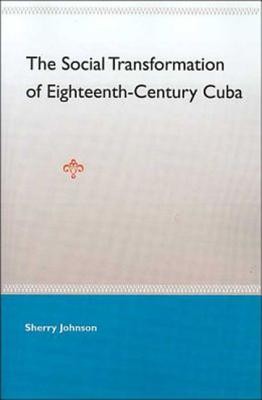
- We will send in 10–14 business days.
- Author: Sherry Johnson
- Publisher: University Press of Florida
- ISBN-10: 0813028000
- ISBN-13: 9780813028002
- Format: 15.2 x 22.9 x 1.7 cm, softcover
- Language: English
- SAVE -10% with code: EXTRA
The Social Transformation of Eighteenth-Century Cuba (e-book) (used book) | bookbook.eu
Reviews
Description
"No previous work so clearly and coherently examines the uniqueness of Cuba within the Caribbean and Hispanic American context. It is indispensable for understanding the development of society and economy in Cuba after 1762."--Franklin W. Knight, Leonard and Helen R. Stulman Professor of History, Johns Hopkins University
Sherry Johnson's revisionist study contributes to a new understanding of colonial Cuban history in several ways. Most important, it challenges existing interpretations of Cuban history by advancing an alternative to the "sugar is forever" thesis. In doing so, Johnson provides answers to fundamental questions regarding Cuban identity in the 19th century.
Johnson advances a wealth of demographic data to document the contribution of the military, particularly military spending, to social, spatial, and economic change on the island long before sugar became the principal engine of its economy. She also shows how immigration had an impact on the elite and middling ranks, analyzes family life in the city, and explains how the consequences of reform resonated to the lowest ranks of Cuban society.
In addition, she establishes how the death of the Spanish monarch Charles III in 1788 brought a brutal purge of Cuban society and a new, detested captain-general to power in 1790. The political repercussions of this hated regime were felt well into the 19th century, she argues, in the genesis of a popular discourse against Spanish colonialism, sugar, and slavery.
Sherry Johnson is assistant professor of history and Cuban studies at Florida International University. She is the author of articles on Cuban and Florida history in such journals as Florida Historical Quarterly, Hispanic American Historical Review, Cuban Studies, and Colonial Latin American Historical Review.
EXTRA 10 % discount with code: EXTRA
The promotion ends in 20d.03:03:48
The discount code is valid when purchasing from 10 €. Discounts do not stack.
- Author: Sherry Johnson
- Publisher: University Press of Florida
- ISBN-10: 0813028000
- ISBN-13: 9780813028002
- Format: 15.2 x 22.9 x 1.7 cm, softcover
- Language: English English
"No previous work so clearly and coherently examines the uniqueness of Cuba within the Caribbean and Hispanic American context. It is indispensable for understanding the development of society and economy in Cuba after 1762."--Franklin W. Knight, Leonard and Helen R. Stulman Professor of History, Johns Hopkins University
Sherry Johnson's revisionist study contributes to a new understanding of colonial Cuban history in several ways. Most important, it challenges existing interpretations of Cuban history by advancing an alternative to the "sugar is forever" thesis. In doing so, Johnson provides answers to fundamental questions regarding Cuban identity in the 19th century.
Johnson advances a wealth of demographic data to document the contribution of the military, particularly military spending, to social, spatial, and economic change on the island long before sugar became the principal engine of its economy. She also shows how immigration had an impact on the elite and middling ranks, analyzes family life in the city, and explains how the consequences of reform resonated to the lowest ranks of Cuban society.
In addition, she establishes how the death of the Spanish monarch Charles III in 1788 brought a brutal purge of Cuban society and a new, detested captain-general to power in 1790. The political repercussions of this hated regime were felt well into the 19th century, she argues, in the genesis of a popular discourse against Spanish colonialism, sugar, and slavery.
Sherry Johnson is assistant professor of history and Cuban studies at Florida International University. She is the author of articles on Cuban and Florida history in such journals as Florida Historical Quarterly, Hispanic American Historical Review, Cuban Studies, and Colonial Latin American Historical Review.


Reviews